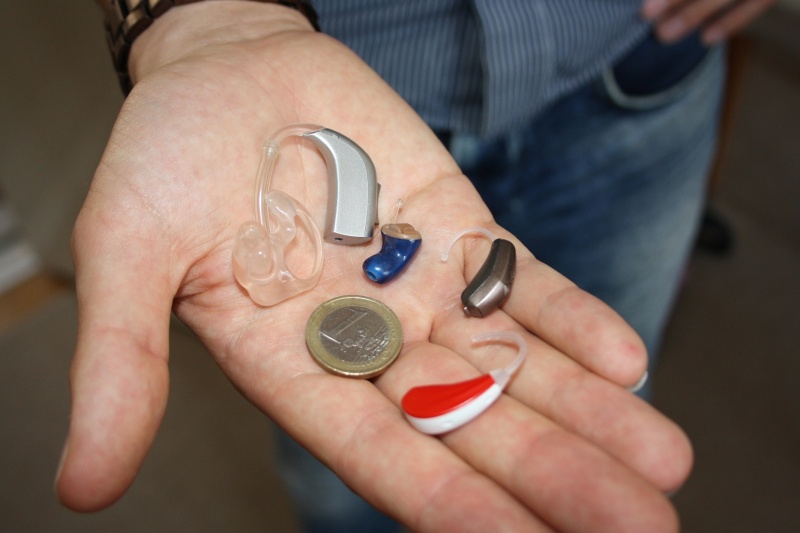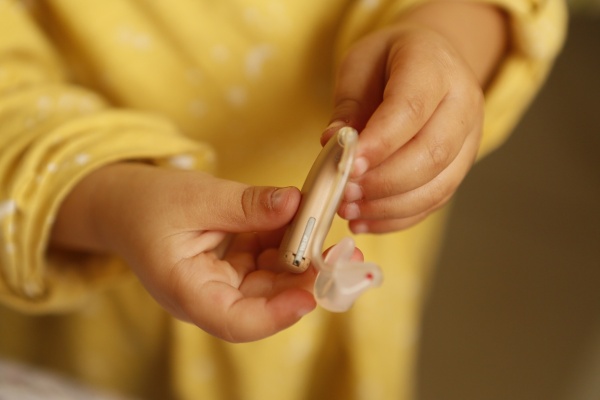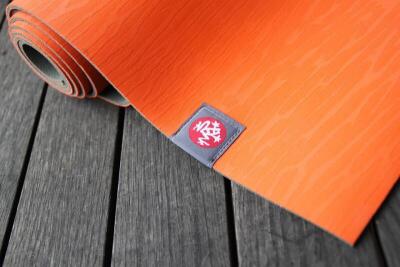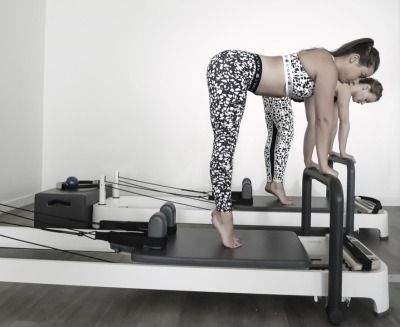Which Hearing Aid is Right for You?

Making the decision to get a hearing aid is a big one. There are so many different types and brands of hearing aids on the market, it can be hard to know which one is right for you. That's why we've put together this guide to help you choose the best hearing aid for your needs. We'll go over the different types of hearing aids available, as well as some factors you should consider when making your decision. So if you're not sure which hearing aid is right for you, read on!
Why choosing the right hearing aid is important
If you're considering getting a hearing aid, it's important to choose one that will be right for you. There are many different types and brands of hearing aids on the market, so it's important to do your research before making a purchase. With so many options available, choosing the right hearing aid can seem like a daunting task. However, it's important to find a hearing aid that fits your lifestyle and needs. Otherwise, you may not be satisfied with the results.
There are many different types of hearing aids available on the market. Some hearing aids are designed for specific needs, such as those who have severe hearing.
The different types of hearing aids available
There are many different types of hearing aids available on the market. Some hearing aids are designed for specific needs, such as those who have severe hearing loss or need a hearing aid that can be used in both ears. Other hearing aids are more general and can be used for a variety of different needs. The type of hearing aid you choose should be based on your individual needs and preferences.
Here are some of the most common types of hearing aids available:
1. In-the-ear (ITE) hearing aids
These hearing aids fit directly into the outer part of your ear. ITE hearing aids are less visible than other types of hearing aids and can be used for a variety of different hearing needs.
2. Behind-the-ear (BTE) hearing aids
These hearing aids are larger than ITE hearing aids and fit behind your ear. BTE hearing aids are more visible than ITE hearing aids, but they can be more effective for those with severe hearing loss.
3. In-the-canal (ITC) hearing aids
These hearing aids are smaller than ITE hearing aids and fit further into your ear canal. ITC hearing aids are less visible than other types of hearing aids, but they can be more difficult to insert and remove.
4. Completely-in-the-canal (CIC) hearing aids
These hearing aids are the smallest type of hearing aid and fit completely into your ear canal. CIC hearing aids are barely visible, but they can be more difficult to insert and remove.
5. Receiver-in-the-canal (RIC) hearing aids
These hearing aids are similar to BTE hearing aids, but the receiver is located in the ear canal instead of behind the ear. RIC hearing aids can be more effective for those with mild to moderate hearing loss.
6. Open-fit hearing aids
These hearing aids are similar to BTE and RIC hearing aids, but they have a small tube that goes into the ear canal. This allows for more natural sound to enter the ear, which can be beneficial for those with mild to moderate hearing loss.
7. Bone-anchored hearing aids
These hearing aids are surgically implanted and use vibrations to send sound waves to the inner ear. Bone-anchored hearing aids can be beneficial for those with severe hearing loss or other conditions that prevent the use of traditional hearing aids.
Factors to consider when choosing a hearing aid
When choosing a hearing aid, there are a few different factors you'll need to consider. This includes the type of hearing loss you have, the severity of your hearing loss, your lifestyle, and your budget. It's important to choose a hearing aid that will be able to meet your needs and preferences. Otherwise, you may not be satisfied with the results.
1. The type of hearing loss you have
There are two main types of hearing loss: conductive and sensorineural. Conductive hearing loss occurs when there is a problem with the outer or middle ear. Sensorineural hearing loss occurs when there is damage to the inner ear or the auditory nerve. It's important to choose a hearing aid that is designed for your specific type of hearing loss.
2. The severity of your hearing loss
Hearing loss is classified as mild, moderate, or severe. The severity of your hearing loss will impact the type of hearing aid you need. For example, those with mild hearing loss may be able to use a less powerful hearing aid, while those with severe hearing loss will need a more powerful hearing aid.
3. Your lifestyle
Your lifestyle should also be taken into consideration when choosing a hearing aid. If you lead an active lifestyle, you'll need a hearing aid that is durable and can withstand being exposed to the elements. On the other hand, if you lead a more sedentary lifestyle, you may not need a hearing aid that is as durable.
4. Your budget
Hearing aids can be quite expensive, so you'll need to consider your budget when choosing one. There are a variety of different hearing aid types and brands to choose from, so you should be able to find one that fits your budget. Just be sure to read reviews before making your purchase to ensure you're getting a quality product.
Once you've considered all of these factors, you should be able to narrow down your options and choose the best hearing aid for you.
How to care for your hearing aid
Once you've chosen the perfect hearing aid, it's important to know how to properly care for it. This will help to ensure that your hearing aid lasts as long as possible and continues to function properly. Here are a few tips for caring for your hearing aid:
1. Keep it clean
It's important to keep your hearing aid clean to prevent any buildup of wax or other debris. Be sure to clean your hearing aid regularly with a soft, dry cloth. You can also use a mild soap and water solution if needed.
2. Store it properly
When you're not using your hearing aid, be sure to store it in a safe, dry place. This will help to prevent any damage to the hearing aid.
3. Handle it with care
Be sure to handle your hearing aid with care to avoid any damage. Avoid dropping or jarring your hearing aid, and be careful when inserting or removing it from your ear.
4. Keep it away from moisture
Moisture can damage your hearing aid, so be sure to keep it away from any water. This includes taking it off before swimming or showering.
5. Replace the batteries regularly
Hearing aids require batteries in order to function properly. Be sure to replace the batteries in your hearing aid regularly to ensure that it continues to work properly.
By following these tips, you can help to ensure that your hearing aid lasts for a long time. If you have any questions about how to care for your hearing aid, be sure to consult with your audiologist.
Hearing aid accessories
There are a variety of different hearing aid accessories available that can help to improve the function and performance of your hearing aid. Here are a few of the most popular hearing aid accessories:
1. Hearing aid batteries
Hearing aid batteries are essential for ensuring that your hearing aid continues to work properly. Be sure to purchase high-quality batteries and replace them regularly to ensure optimal performance.
2. Hearing aid cases
Hearing aid cases are a great way to protect your hearing aid when you're not using it. Cases come in a variety of different sizes and styles, so you can choose one that fits your needs.
3. Hearing aid cleaners
Hearing aid cleaners help to keep your hearing aid clean and free of wax or debris. Be sure to use a cleaner specifically designed for hearing aids to avoid damaging your device.
4. Hearing aid straps
Hearing aid straps can help to keep your hearing aid in place, especially if you have an active lifestyle. Straps come in a variety of different styles and sizes, so you can choose one that fits your needs.
5. Hearing aid earbuds
Hearing aid earbuds can help to improve the sound quality of your hearing aid. Be sure to purchase earbuds that are specifically designed for use with hearing aids to avoid damaging your device.
How to troubleshoot common hearing aid problems
Even the best-cared-for hearing aids can experience problems from time to time. If you're having trouble with your hearing aid, here are a few tips for troubleshooting the most common problems:
1. Battery problems
If your hearing aid isn't working properly, the first thing you should check is the battery. Be sure to purchase high-quality batteries and replace them regularly to avoid any issues.
2. Debris build-up
Another common problem with hearing aids is debris build-up. Be sure to clean your hearing aid regularly with a soft, dry cloth. You can also use a mild soap and water solution if needed.
3. Moisture damage
Moisture can damage your hearing aid, so be sure to keep it away from any water. This includes taking it off before swimming or showering.
4. Physical damage
Another common problem with hearing aids is physical damage. Be sure to handle your hearing aid with care to avoid any damage. Avoid dropping or jarring your hearing aid, and be careful when inserting or removing it from your ear.
If you're having trouble with your hearing aid, these tips can help you troubleshoot the problem. If the problem persists, be sure to consult with your audiologist.
Conclusion
If you're having trouble hearing, there are a few things you can do to help. First, be sure to visit an audiologist to get your hearing tested. Once you know what the problem is, you can choose the best course of action.
If you have a hearing loss, there are a variety of different types of hearing aids available to help you hear better. Be sure to consult with your audiologist to find the best option for you. There are also a variety of hearing aid accessories available that can improve the function and performance of your hearing aid.
If you're having trouble with your hearing aid, be sure to consult with your audiologist. They can help you troubleshoot the problem and find a solution that works for you.














